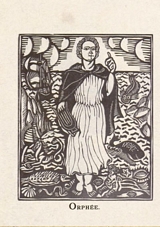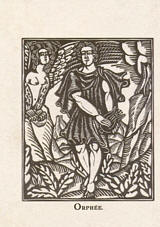![]()
In le Bestiaire, ou Cortège d’Orphée staat Orpheus centraal, de mythische dichter die de natuur met zijn zang aan zich onderwerpt (vandaar de subtitel le cortège d’Orphée: de processie, de stoet van Orpheus). Maar welk een vreemde natuur is dit en wat een eigenaardige dichter. Viermaal treedt Orpheus op, 26 ‘dieren’ (nou ja?) passeren de revue. De os is geen os maar een cherub, het paard is Pegasus, en wat te denken van de Medusa-kwal… Hoe langer je ernaar kijkt, hoe intrigerender de gedichten (en de gravures) worden. Vandaar een complete editie met vertaling in het Nederlands en het Engels, incl. enig commentaar. Don’t underestimate Apollinaire! Geniet ervan! Dick Wursten ↗
Nieuwsgierig geworden? Lees wat zijn vertaler (J.P. van der Sterre) vertelt op de Meander-website.
![]()
The Bestiaire ou Cortège d’Orphée (Bestiary, or Orpheus’ Parade) is a bibliophile album of 30 short poems by Guillaume Apollinaire (text) and Raoul Dufy (woodcuts), published in 1911. In 1906, Pablo Picasso, a friend of Apollinaire’s, had made some experimental woodcuts of animals but was not available to illustrate the full edition. In this costly “multi-media” edition 26 animals (real and mythical as in medieval Bestiaries) form the parade, organised by Orpheus plucking his lyre (the orpharion, made of a tortoise shell – of course one of the poetised animals). Orpheus himself appears in four poems and is clearly Apollinaire’s alter ego. You can read and admire them one by one using the thumbnails below. Apollinaire was fond of music (hence the link to Poulenc’s miniatures) and loved wordplay and paradox. Enjoy! Dick Wursten ↗
The six (+2 +1 +1) poems set to music by Francis Poulenc (text, image, audio). The four (+1) poems with Orpheus as subject are below the bestiary thumbnails. Apollinaire’s own notes to the poems are included on the relevant pages.
Poems and engravings (alphabetical order)
Click a thumbnail to open the poem with translation (English & Dutch) and Apollinaire’s original note.
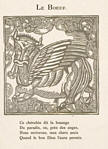
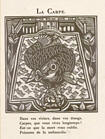
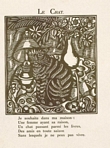
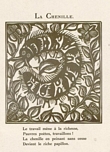


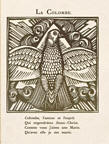
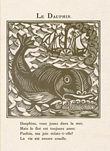
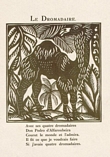
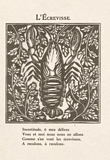
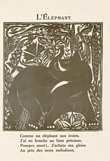

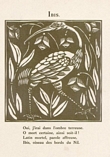
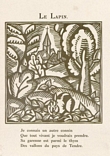

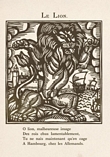
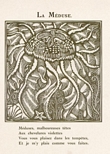
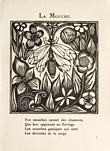
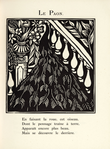
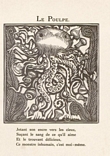

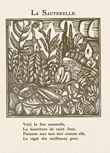
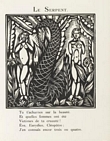
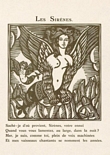

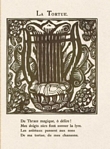
The four poems of Orpheus


